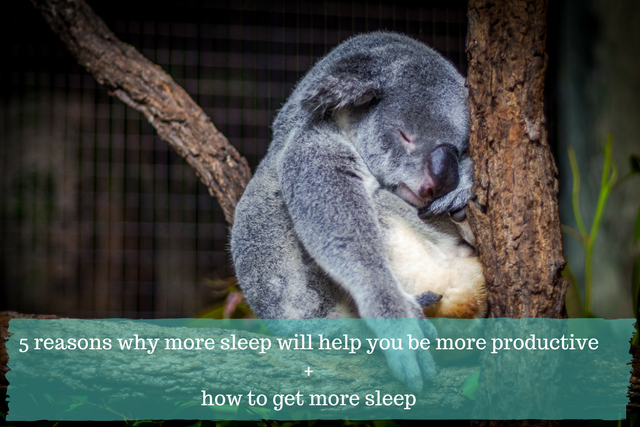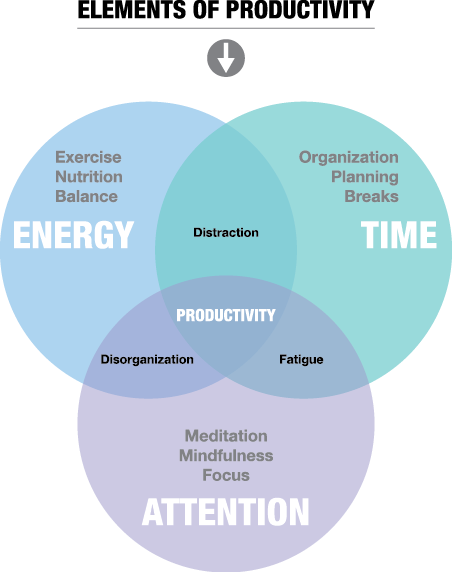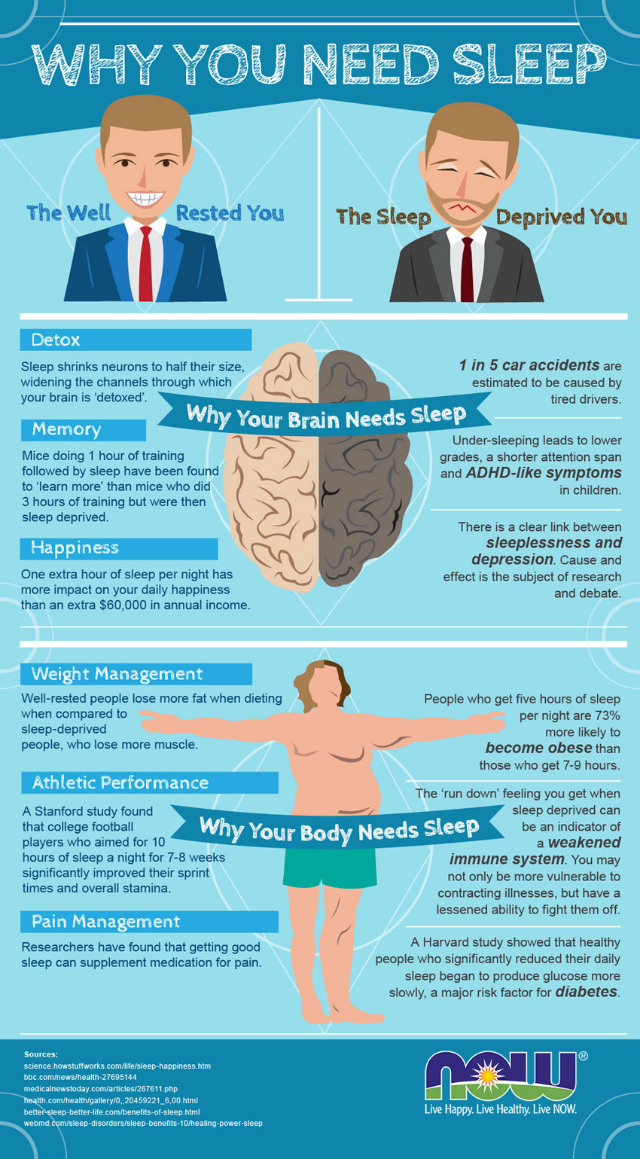This post is part of a series on productivity. You can find more posts in the series here.
***********
In the PWK survey last year I asked the following question “What is the biggest thing impacting on your productivity at home?”. 21% of readers said that tiredness impacted their productivity. My personal experience agrees! If you want to increase your productivity significantly, one of the key things you can do is get more sleep. I ran for many years getting too little sleep and it wasn’t the years when I was waking up to breastfeed babies!
Once all the kids were sleeping through, I was working on the blog and used to do the bulk of the work in the evening when they were asleep. I would often feel quite exhausted but I would work on regardless, most times I would get a second wind around 9.30pm – 10.00pm and work until just before or even after midnight. I didn’t used to get up as early as I do now, but my kids have always been early risers, so I would be up around 6am.
When the kids were babies and I was still breastfeeding them, I was very disciplined in making sure I got as much rest as I could. I would do everything in my power to make sure the baby and toddler and preschooler would nap at the same time, so I could have a power nap on the couch. The power nap would make a huge difference to how I would be able to cope at 5pm that day. But once they were older I dropped this habit, so I was functioning on an average less than six hours of sleep a night, with no catch up in the day.
This of course was unsustainable and when I finally came to my senses and decided to stop working at night something pretty magical happened. My workload wasn’t any less, but I actually started achieving more with my days. I was regularly achieving over seven hours asleep and I wasn’t waking up feeling exhausted – this really made me feel so much happier. When I stopped to look at how I was I getting more done in less hours, it very clearly showed me the link between sleep and productivity. More sleep increases your productivity because of the impact it has on all of the elements of productivity.
If you get more sleep you will:
Have more energy
It takes energy to get through the day. The pace at which you can move through your day and complete the necessary tasks is significantly impacted by the amount of sleep you have. Tasks can easily take half the time when you wake up feeling refreshed and have the energy to do them.
Have clearer head
We all know the fogginess we feel when we are sleep deprived. Getting more sleep impacts productivity significantly because it gives us a clearer head.
Scientists measuring sleepiness have found that sleep deprivation leads to lower alertness and concentration. It’s more difficult to focus and pay attention, so you’re more easily confused. This hampers your ability to perform tasks that require logical reasoning or complex thought. {source}
Are less likely to procrastinate
Being tired affects our ability to make decisions. When we can’t make decisions, we procrastinate. If you aren’t tired, you make quick decisions and get on with completing the tasks you have chosen to do.
More likely to work on tasks of value
Due to the impact on your decision making and energy levels, you are much more likely to choose easier tasks. While you are still getting stuff done this way, it isn’t productive. As I noted in a previous post I define productivity as using your time, energy and attention effectively to achieve your goal. To be productive with your time, you need to be working on tasks of value.
Make less mistakes
Due to your inability to focus clearly, you are far more likely to make mistakes. Making mistakes means you have to redo or fix the work so it takes much more time to get tasks completed. Once you get more sleep, you can use your cleared head to avoid mistakes and complete tasks effectively.
How to get more sleep
Now if you have a baby or toddler that is waking multiple times over night and you are operating on many nights of consecutive broken sleep, I am very sorry, but I don’t have a solution for that. My best advice for this season of life is to keep everything else as simple as possible and not to expect too much of yourself. Cut back where you can so you can get in extra power naps elsewhere across the day if possible.
But I know there is a very large group of mums who are not getting enough sleep and it is not because they have little ones waking them up and this is who these tips are aimed at. If you look down the list, it may seem rather tough, but it comes from a mum who has been there and put herself into sleep deprivation and knows how it feels. I am familiar with how easy it is to get yourself into a cycle of not enough sleep and how hard it can be go to get yourself out of it, but it is worth the effort. Getting more sleep will not only make you more productive, it will make you happier and a better person to be around.
Have a night time routine
I have written before about my night time routine and you can read it here – Evening routine – getting prepared for the next day. As parents we know the importance of having a routine for the kids at night time. It may not be that they do the exact activity at the same time each night, but they have a series of activities they do in the lead up to going to bed. They become the cues to wind down and prepare themselves for sleep.
As adults it is also important for us to have a night time routine. A series of activities we do or don’t do before we go to bed. Again it doesn’t need to be at 7.45pm I wipe down the kitchen benches, but it is about having a flow that you work through to get yourself organised to get to bed at a set time and have you organised for the next day.
Without a night time routine, the chances of you getting yourself off to bed at a set time so you get enough sleep start to drop significantly. Distracted by TV, other screens or other activities, the time can drift away quickly and before you know it is time to go to bed. But you look around the house and there is still things to be done, so you work on them and head off to bed much later than you wanted.
Set yourself a bedtime that will give you enough sleep before you have to get up and get going in the morning and then work back from there to add in the task you need to do each evening. Do those tasks before you move on to anything else – make this a habit, so eventually you don’t even have to think about it, you just do it.
No screens an hour before bed
It is now widely accepted that the blue light from screens impacts our sleep. When I discuss this with others (including my husband!) I regularly hear that they don’t have an issue with screens and sleeping, they go to sleep easily and it isn’t an issue.
However research shows this is not the case. Even if you do fall to sleep quickly after looking at screens before bedtime, the impact of the blue light can dramatically effect the quality of your sleep:
Recent studies have shown that short-wavelength [blue] light has a greater effect on phase shifting the circadian clock and on melatonin suppression. In 2014 my colleagues and I examined the effects of reading on a light-emitting device compared with reading a printed book. Participants who read on light-emitting devices took longer to fall asleep, had less REM sleep [the phase when we dream] and had higher alertness before bedtime [than those people who read printed books]. We also found that after an eight-hour sleep episode, those who read on the light-emitting device were sleepier and took longer to wake up. In the study all participants had to stop reading and turn off the lights at exactly 10 P.M., even if they did not feel sleepy. At home, I would expect people do not have the motivation to turn off their devices and go to bed, so they would stay up longer and experience even more circadian delay and shorter sleep times. The effects in the real world could actually be even greater. Harvard University neuroscientist Anne-Marie Chang
Write a to do list
Before you go to bed, write down your key tasks for the following day and anything else that you need to remember so they won’t be on your mind as you lay down to go to sleep. I do a major write up each Sunday evening and have this as my master list for the week. Throughout the day, I will add to it if things arise that I need to do and then at the end of each day I write my three key tasks for home and work that I will do the next day. You can see more about my to do list process here.
Be conscious about food and drink before bed time
Everyone will be different in terms of how much they can eat and drink in the evening before it will have an impact on their sleep. I drink a lot of water and a lot of tea, but I am conscious to limit that in the hours before bed.
Alcohol has been proven to have a negative impact on sleep, so it is best avoided before going to sleep:
A new review of 27 studies shows that alcohol does not improve sleep quality. According to the findings, alcohol does allow healthy people to fall asleep quicker and sleep more deeply for a while, but it reduces rapid eye movement (REM) sleep. {source}
Be active during the day
When you are sleep deprived, it can be hard to feel like exerting physical activity but it will have a positive impact on your sleep. In the study Association between objectively-measured physical activity and sleep, NHANES 2005–2006 it was found that those who were more active fell asleep quicker.
Sleep and good health
And getting good sleep isn’t all about productivity. If you want to live longer and have good health, you need to make sleep a priority.
Sleep infographic by NOWFoods. To see a larger version of the infographic click on the image.



